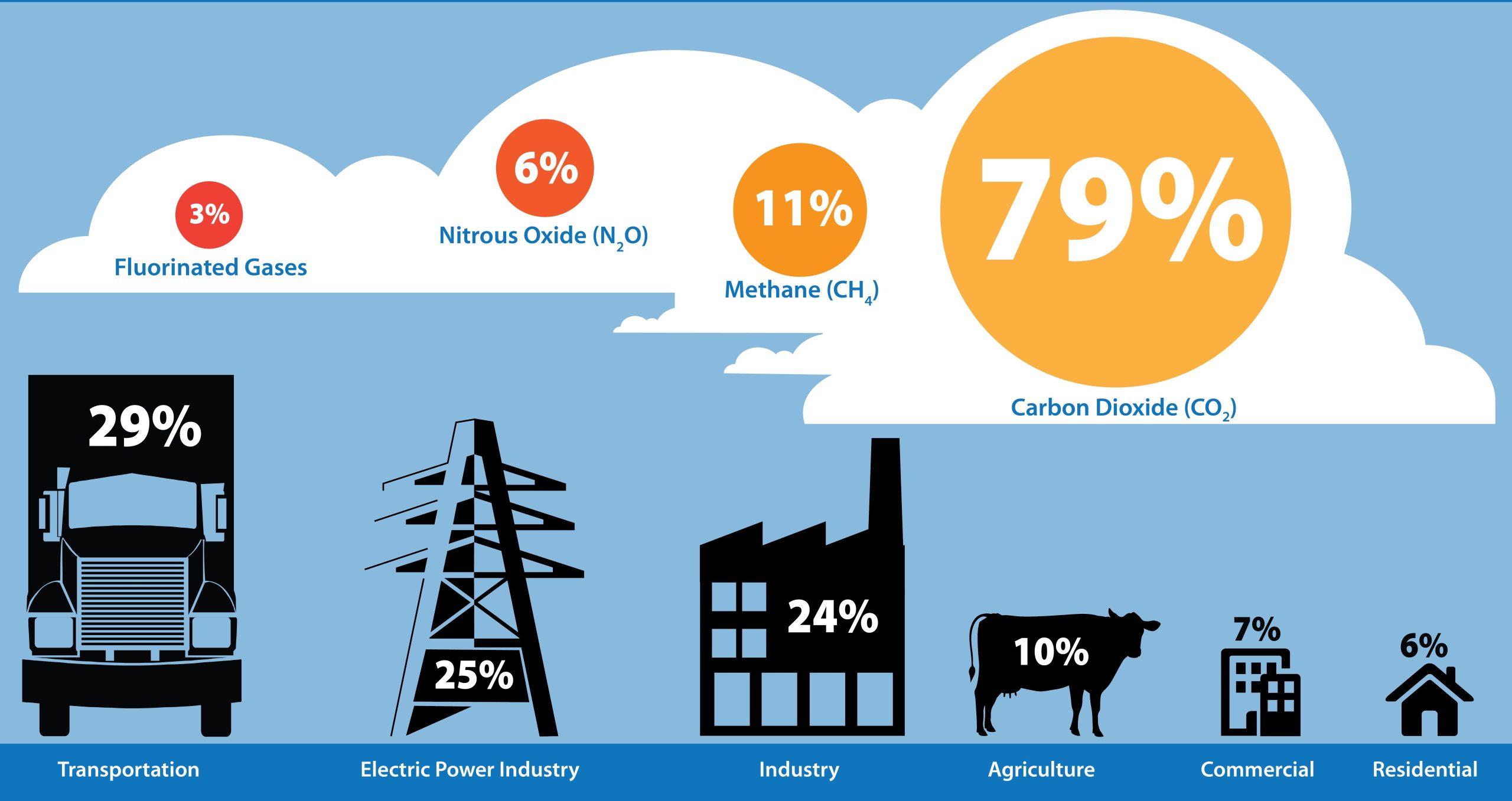The Environmental Protection Agency’s new Inventory of U.S. Greenhouse Gas Emissions and Sinks cites 5.586 billion metric tons (mt) of carbon dioxide equivalent (CO2e) emissions for 2021, a 6 percent increase over the prior year. The Inventory spans six economic sectors; the third largest, Industry, accounted for 24 percent, or 1.34 billion mt of CO2e in 2021.
U.S. GREENHOUSE GAS CENSUS
2021 Emissions Levels By Economic Sector

Within Industry, EPA reports Cement Production at 41.3 million mt and Iron and Steel Production at 38.4 million mt. In comparison to widely adopted metrics suggesting the sectors each account for 7-8 percent of global GHG emissions, cement and iron/steel contributed about 0.7 percent of the U.S. 2021 output. EPA researchers calculate CO2e totals for the materials by factoring fuel or source mixes behind combustion phases and process electricity. EPA assigns CO2e metrics by UN Intergovernmental Panel on Climate Change-designated global warming potential, where CO2, methane and nitrous oxides are respectively weighted 1, 28 and 265, while certain hydrofluorocarbons reach into the four- or five-digit range.
“For 30 years EPA has worked with researchers, federal partners, and stakeholders to produce a detailed and complete inventory of U.S. greenhouse gas emissions and sinks,” says EPA Office of Air and Radiation Principal Deputy Assistant Administrator Joseph Goffman. “This work reflects our commitment to transparency, data quality, and timeliness as we meet our inventory obligations under the United Nations Framework Conventions on Climate Change.”
The 881-page report is posted at www.epa.gov/ghgemissions.